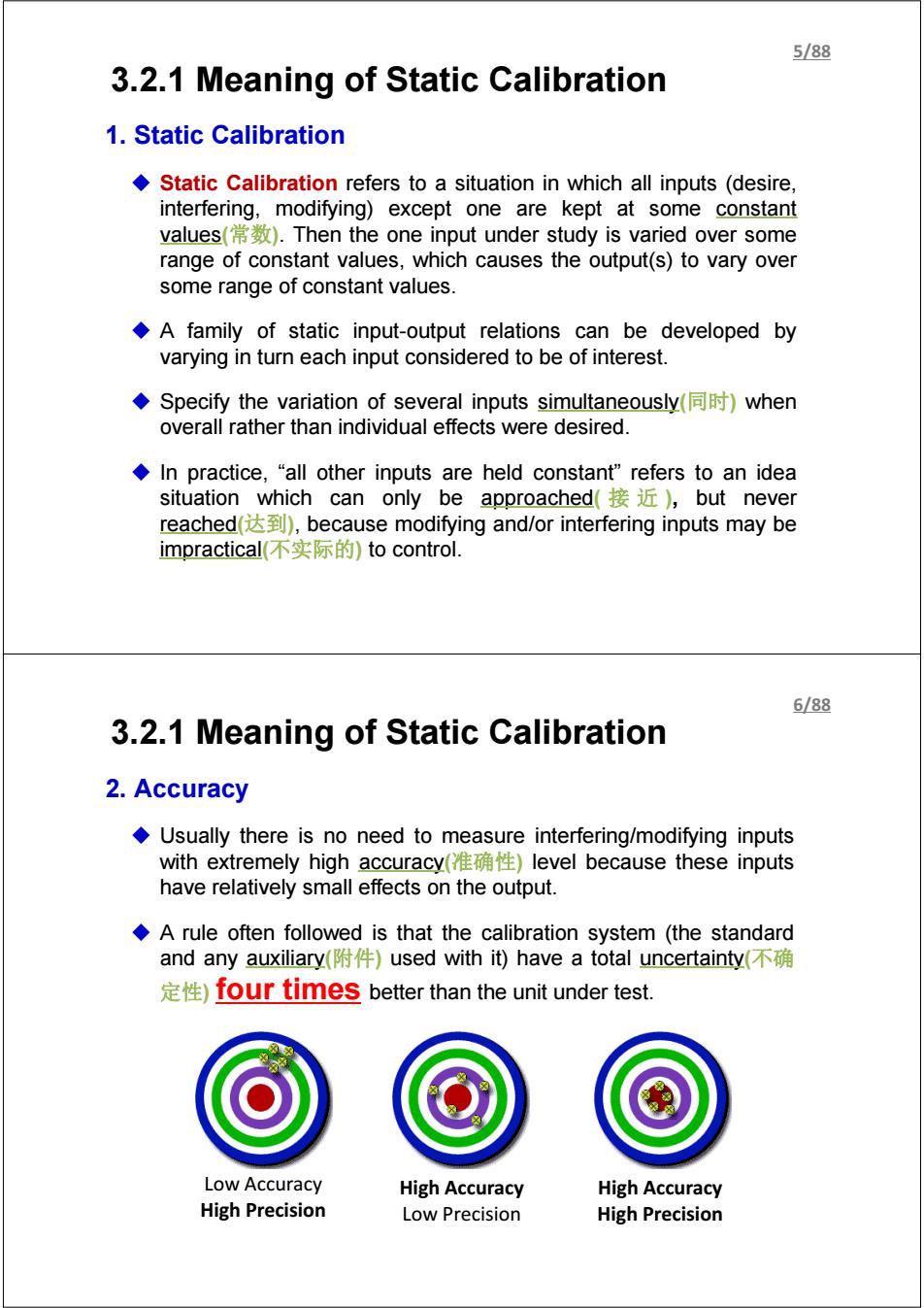正在加载图片...

5/88 3.2.1 Meaning of Static Calibration 1.Static Calibration Static Calibration refers to a situation in which all inputs (desire, interfering,modifying)except one are kept at some constant values().Then the one input under study is varied over some range of constant values,which causes the output(s)to vary over some range of constant values. A family of static input-output relations can be developed by varying in turn each input considered to be of interest. ◆Specify the variation of several inputs simultaneously同时)when overall rather than individual effects were desired. ◆In practice,“all other inputs are held constant'”refers to an idea situation which can only be approached(接近,but never reached达到),because modifying and/.or interfering inputs may be impractical(不实际的)to control. 6/88 3.2.1 Meaning of Static Calibration 2.Accuracy Usually there is no need to measure interfering/modifying inputs with extremely high accuracy(准确性)level because these inputs have relatively small effects on the output. A rule often followed is that the calibration system (the standard and any auxiliary(附件)used with it)have a total uncertainty(不确 定性)four times better than the unit under test.. Low Accuracy High Accuracy High Accuracy High Precision Low Precision High Precision3.2.1 Meaning of Static Calibration 1. Static Calibration Static Calibration refers to a situation in which all inputs (desire, interfering, modifying) except one are kept at some constant values(常数). Then the one input under study is varied over some range of constant values, which causes the output(s) to vary over some range of constant values. A family of static input-output relations can be developed by varying in turn each input considered to be of interest. Specify the variation of several inputs simultaneously(同时) when overall rather than individual effects were desired. In practice, “all other inputs are held constant” refers to an idea situation which can only be approached( 接 近 ), but never reached(达到), because modifying and/or interfering inputs may be impractical(不实际的) to control. 5/88 2. Accuracy Usually there is no need to measure interfering/modifying inputs with extremely high accuracy(准确性) level because these inputs have relatively small effects on the output. A rule often followed is that the calibration system (the standard and any auxiliary(附件) used with it) have a total uncertainty(不确 定性) four times better than the unit under test. 3.2.1 Meaning of Static Calibration Low Accuracy High Precision High Accuracy Low Precision High Accuracy High Precision 6/88